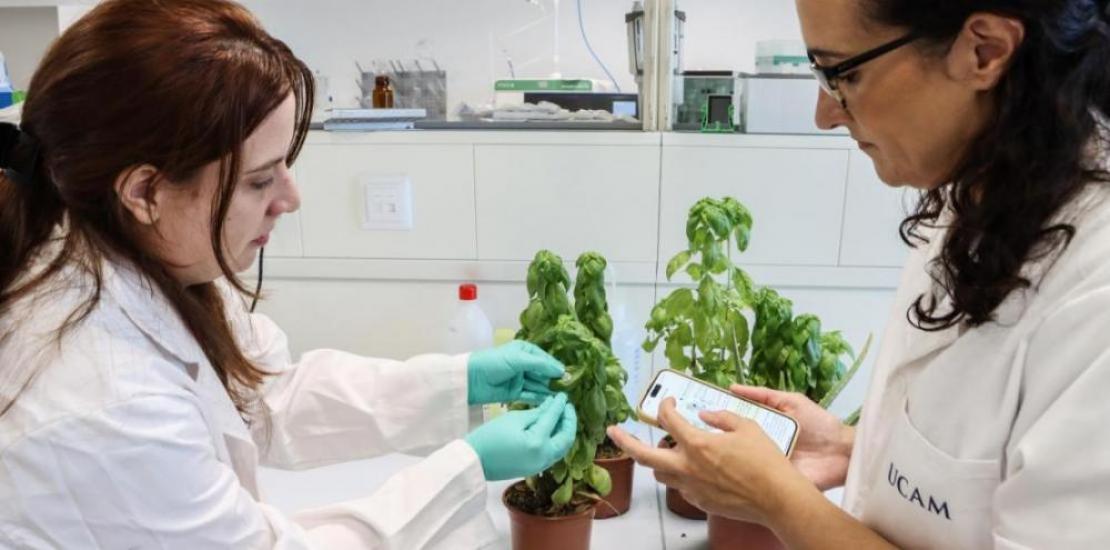UCAM-SENS develops a sensor for real-time visualisation of the overall state of plants
The device allows the detection of ions in different parts of the plant in a non-destructive way, contributing to the improvement of agricultural performance.
Researchers at the Chemical Sensors Unit of the Universidad Católica San Antonio de Murcia (UCAM-SENS) have designed a microneedle-based sensor that can measure the concentrations of two of the most relevant ions in plant physiology, potassium and sodium, in living plants in real time, without harming them. This device represents a crucial advance in the monitoring of plant health, providing continuous, real-time data on the levels of these ions, which are essential for the correct development and growth of plants.
The sensor offers a fast response time of less than five seconds and can accurately measure all levels of ion concentrations that are common in plants on a continuous basis for 24 hours, making it an ideal tool to be used in crops.
The development of this sensor represents a breakthrough in smart agriculture, as it can detect ion imbalances in real time, which would help prevent stressful situations in plants and optimise resources. This non-invasive system has been tested on basil and tomato plants subjected to different stress situations, such as saline and day/night cycles.
The development of this sensor addresses the growing demand for technological solutions to improve agricultural production in a sustainable way, a global challenge in a context of population growth and climate change. ‘This would allow resources, such as water, to be managed more efficiently, with the consequent positive impact on the economy of the Region of Murcia,’ said researcher Águeda Molinero.
This research, carried out by UCAM in collaboration with KTH (The Royal Institute of Technology) of Sweden, contributes to the development of new analytical platforms for agriculture, offering a tool that can optimise resources and improve crop health without the need for invasive and/or destructive methods that cause irreparable damage, and which ‘places the Region, hand in hand with UCAM-SENS, at the forefront of the development of new tools for precision agriculture’, as noted by the project leader, Professor María Cuartero.




